Why choose Alpujarras in Granada as your travel destination?
The answer is simple: The Alpujarra White villages
Alpujarras Villages
Visit the unspoiled natural beauty of Las Alpujarras dominated by the magnificent rugged peaks of Spain’s highest mountain range, the Sierra Nevada. This lands natural beauty is due to the warm climate and abundant supply of water running off the rivers of the Sierra Nevada – making it one of the most fertile valleys in Spain. The small white hillside villages are filled with houses with flat earthen roofs and the terraced farmland reaches over 2,000 meters.
How to get there?
The Alpujarras have several access roads. From Granada it is reached via the N-323 through Armilla, Padul and Durcal to Lanjaron. Then continue on the C-332. From Costa del Sol you have to take the A-346 north, following the river Guadalfeo, which leads to Orgiva and, later, to Lanjaron.
Lanjaron Medicinal Spa Town
Lanjaron is very popular due its clean air, the natural environment, the views and its pure spring water, which is bottled and sold throughout Spain. This village, located on an old silk route south to Persia, has even had poems dedicated to it by Federico García Lorca. It is though that the name of the town derivates from the arabic word of “Al-lanjaron“, “place of springs”. Dated from the 13th century, Muslim Lanjarón remain until the fall of the Kingdom of Granada, in 1492. Besides its springs water is also a famous ham producer, surpassed only by Trevélez. The therapeutic waters have been harnessed at the large Balneario de Lanjaron, a spa on the west edge of town, just opposite the tourist office.
Pampaneira
Located in the Poqueira Valley, its origins date back to the Roman period. The name is considered as derived from the Latin adjective “pampinaria”, meaning producer of small bunches of grapes. The urban shape presented and its architecture are clearly Berber. It was precisely with the Muslims when this town underwent an important agricultural development, especially with silk production. The town has preserved the tradition from the Alpujarras of white houses with flat roofs, chimneys with caps and its peculiar tinaos. It is also well known its richness and variety of handcrafted workshops, which includes textiles, leather, glass, wrought iron and other objects typical from the region. During your visit don’t miss the Parish Church of the Saint Cross, from the 16th century, for the beutiful Mudejar coffered ceiling and elements of Baroque style.
Bubion Historical Setting 
The architecture of Bubión is a point of interest for its roots to the Berber towns of Morocco. steep streets and houses with flat roofs insulated with crushed slate, known as “launa” and adapted to the steep profiles of the mountainous area. The church dedicated to the Virgen del Rosari, built in the 16th century in Mudejar style deserves a visit. Beautiful in its simplicity, it is situated in the lower part of the village near the remains of an old Arab tower from the Nazarí period which was used as a defence fortress. In the same square there is a peculiar fountain with four jets in the form of a cross. On a side a small Ethnic Museum located in a traditional house, Casa Alpujarreña, wich houses artefacts representative of daily life in Alpujarras. Below the church square two restored public wash houses, that until quite recently were used by the women to wash the clothes.
Trevelez Highest town of Spain
Located by the Mulhacen Mountain at the height of the 1486 meters its considered the highest town in Spain. The Arabs called it Trevelex, the origin of this name appears earlier and may be derived from the Latin word velex, that comes to mean “valley“, referring to the valley formed by the rivers Grande and Chico. The Arabs left their mark on this town, such as the distribution of its streets. Do not miss exploring the Barrio Bajo in the lower part of the town where there is also a tourist center.
Orgiva Head of Nazari Taha
Originally seems to have been an Iberian-Roman settlement and it has been identified as the Greek colony of Exoche, mentioned by the geographer Ptolomeo. The first written reference of this town appear in the writings of Al-Idrisi in the 12th century, with the name “Hisn Orgiva”, castle of the territorial division of Elvira. From 1347 during the reign of the emir from Granada Yusuf I, Orgiva was shaped as the head of the Nazari Taha with its name, with four neighbourhoods separated among them: Albacete, Micela or Necila, Almizda and Tixola. Visit the Castle of the Counts of Sástago built by the heirs of the Great Capitan in 16th and 17th centuries, it has a special Arabic architectural style.
In Orgiva you will find some halal restaurants such as Adams Apples and Teteria Baraka
You may also like check our videos
Andalusia Muslim Tours
Madrid, Cordoba & Granada Muslim Tour - 5 days
Madrid & Andalusia - 6 Days
Andalusia Muslim Tour 6 Days 550€
Cordoba, Sevilla, Granada - 5 Days

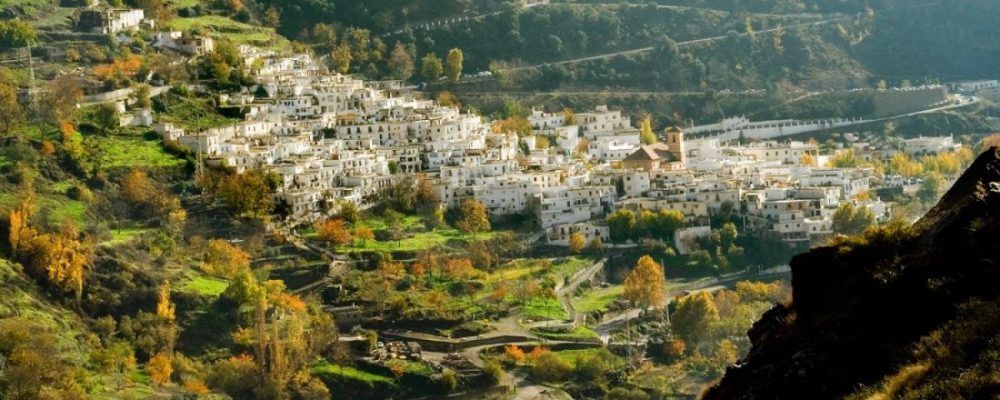

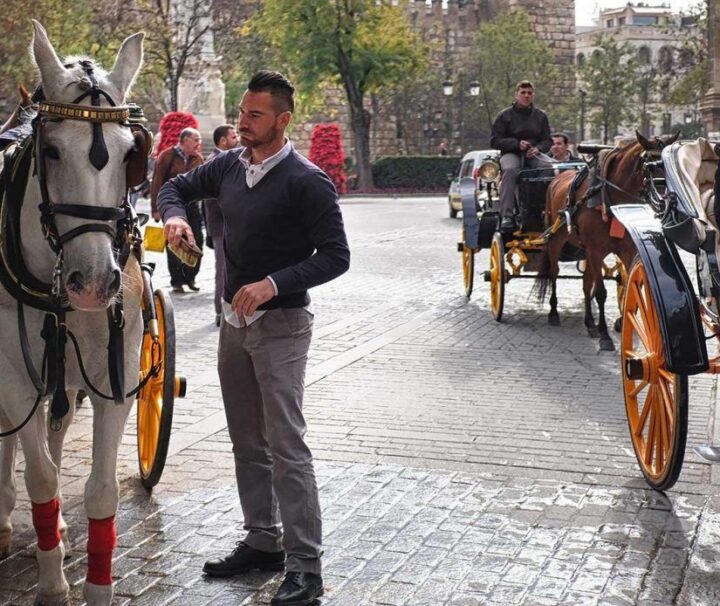
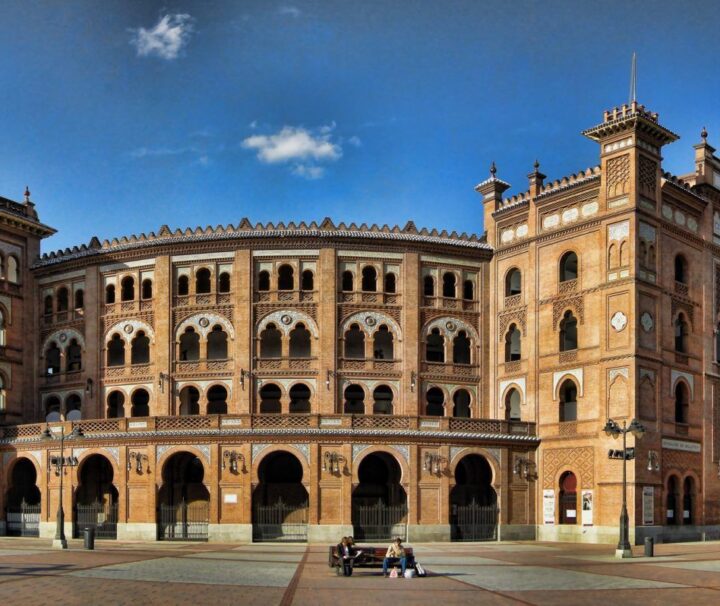
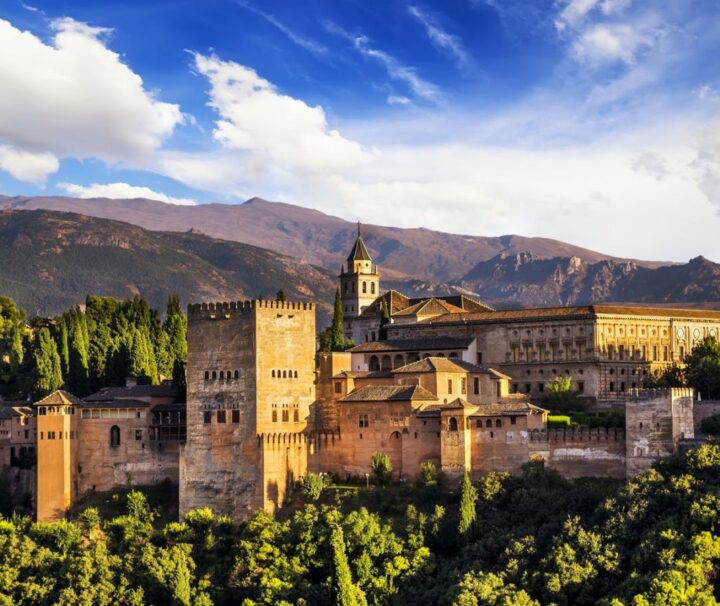
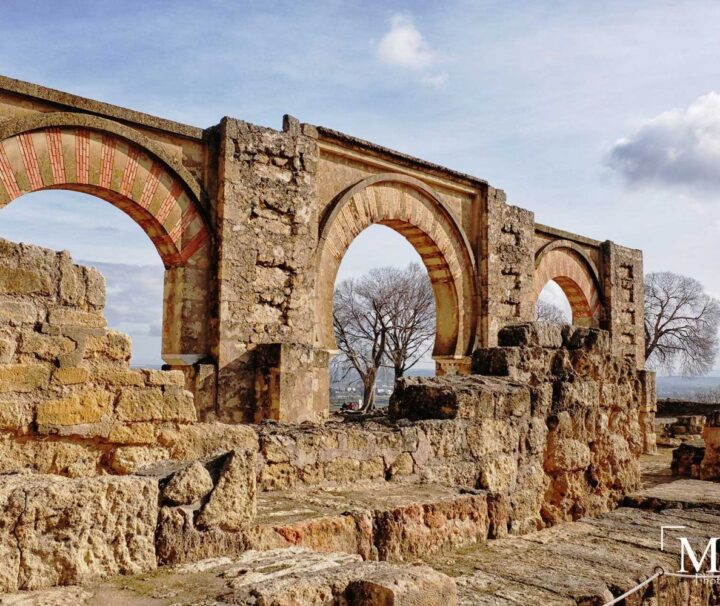
Comments